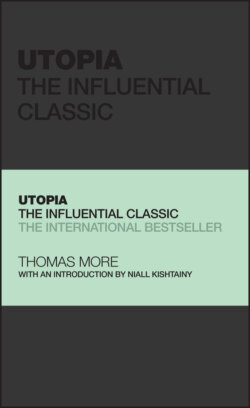Читать книгу Utopia - Sir Thomas More, Thomas More, William Roper - Страница 16
THE LEGACY OF UTOPIA
ОглавлениеWith Utopia, More began a lineage of utopian thinkers who have used storytelling and social analysis to explore new possibilities for society. Many later utopians wrote social blueprints and plans rather than fantastical tales, but they often cited More's Utopia as inspiration. In the late nineteenth century, utopians returned to storytelling. With the New World by then mapped out, it became a less compelling setting for tales of undiscovered perfect societies, so utopian stories often moved readers through time rather than space.
For example, in 1888 the American author Edward Bellamy published Looking Backward, which depicted a future America transformed into a technologically advanced socialist utopia. In 1890, the British writer and artist William Morris hailed More's Utopia as ‘a living work of art’ and published his own, News from Nowhere, which showed a future London transformed into a quasi‐medieval communal idyll.
It is often supposed that after the utopian optimism of the nineteenth century we now live in anti‐utopian times. With the horrors of the twentieth century fresh in our historical imaginations, grand utopian visions are often dismissed as at best naive, at worst a first step towards totalitarianism. True believers seek to obliterate all that stands in their way.
With the collapse of communism in the late twentieth century, it became common to believe that there is no alternative to capitalism, that market forces and money are the only viable way of running societies. Utopias like More's, based on a communal way of life, seemed ever less feasible.
Yet it is human nature to yearn for a better life, and the utopian impulse is never very far below the surface. From the Occupy protests following the 2008 financial crisis, through to Extinction Rebellion climate activists, and even the spread of ‘mutual aid’ organizations during the pandemic, which mobilized communities to assist the most vulnerable, people still seek to create new forms of society. Proposals for a universal basic income, once considered naive utopian fancy, are now taken seriously in policy circles.
Many of these movements oppose ‘neoliberal’ capitalism, which is based on a belief in market forces, financial capital, and the human as self‐interested individual. Inflated property prices, which benefit owners but exclude many from their own cities, are today's version of More's people‐eating sheep: profit and the market come before human values and the community. Critics on the Left argue that rising inequality and the enrichment of the ‘one percent’ mean that social mobility is stalling. These modern complaints echo Utopia's Raphael and his invective against societies with private property as being ‘conspiracies of the rich’.
In 2016, a major exhibition in London celebrated the five‐hundredth anniversary of the publication of Utopia. A specially designed utopian flag – a smiley face on a bright yellow background – was raised above Somerset House, not far from the legal quarter where More began his career. A utopian fanfare was performed by the National Youth Orchestra. The artist Stephen Walter exhibited Nova Utopia, a new map of a fantastical island that contained utopian and dystopian motifs, and explored the encroachment of the private on the public sphere in contemporary society. The festival included workshops that invited participants to think about what the perfect society meant to them.
For conservatives, More's Utopia continues to be a symbol of anti‐freedom and collectivism that has inspired centuries of wrong thinking. Defenders say that far from offering a rigid social blueprint, Utopia is an invitation to dream. Today we would be unlikely to accept a utopia that did not allow for diversity and dissent.
In its exploration of an alternative present through the voices of a rich cast of characters, More asks us to imagine new possibilities in a world of varied humans who may not always agree. In today's dizzyingly complex societies, riven by distrust and under increasing stress, this is the ambitious but clear‐sighted principle for healing and renewal that More's Utopia offers us.
